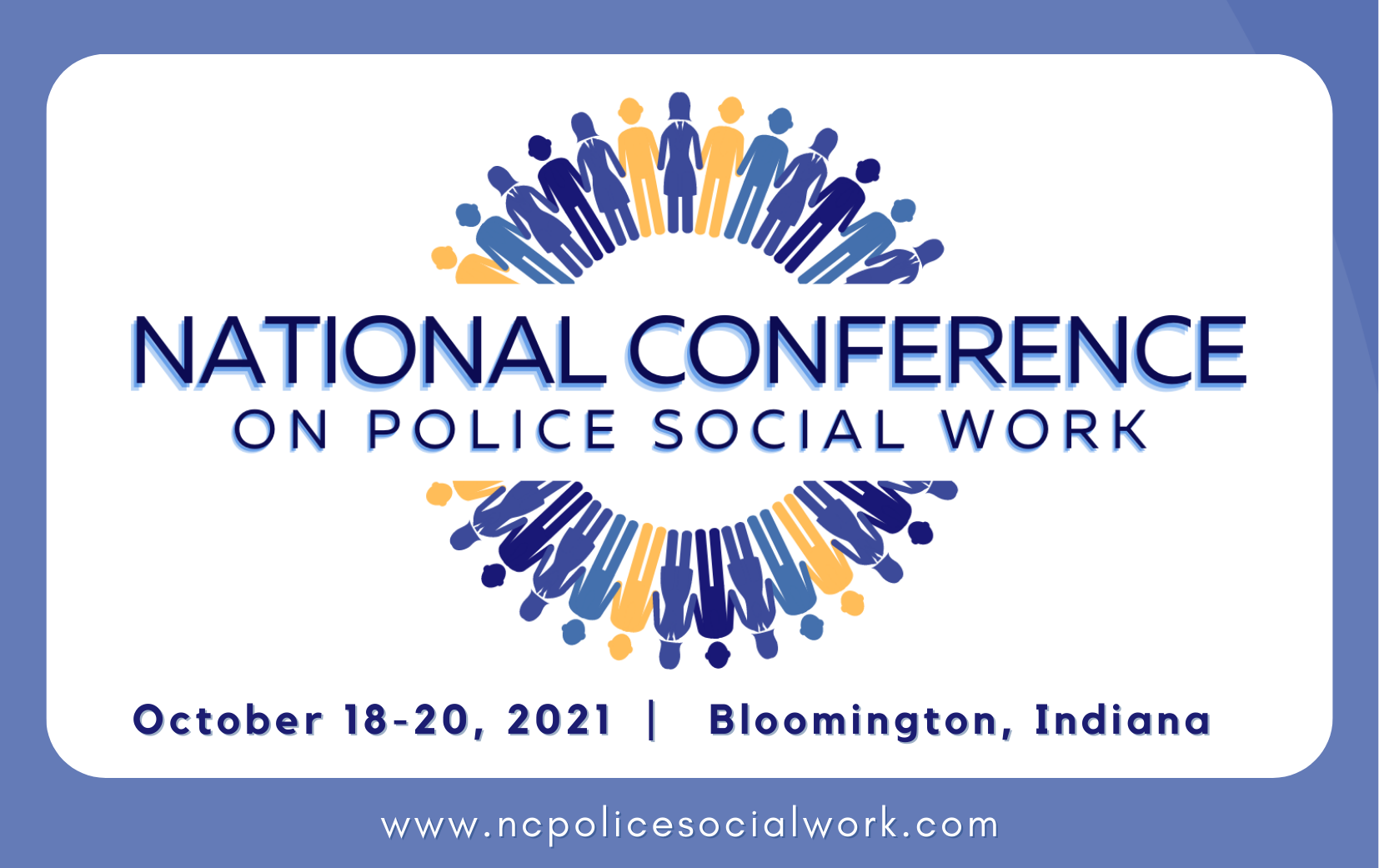Contact Us
To provide feedback on the Community Policing Dispatch, e-mail the editorial board at CPDispatch@usdoj.gov.
To obtain details on COPS Office programs, publications, and resources, contact the COPS Office Response Center at 800-421-6770 or AskCopsRC@usdoj.gov

U.S. Department of Justice
Office of Community Oriented Policing Services
Washington, DC 20530
 In March 2019, the Bloomington (Indiana) Police Department (BPD) hired its first embedded police social worker (PSW) to expand its previously implemented community-based policing initiatives, such as its homeless outreach team, the Downtown Resource Officer program. The department’s goal in hiring the PSW position was to decrease the repeat calls that are part of the daily world of policing in Bloomington, a city of about 85,000 people. Often, these calls are related to unmet social service needs. Since its implementation, the embedded PSW program has not only decreased these repeat calls, but also built community partnerships and expanded the department’s internal training and wellness opportunities. Due to the success of the program, two additional PSWs were hired in 2021.
In March 2019, the Bloomington (Indiana) Police Department (BPD) hired its first embedded police social worker (PSW) to expand its previously implemented community-based policing initiatives, such as its homeless outreach team, the Downtown Resource Officer program. The department’s goal in hiring the PSW position was to decrease the repeat calls that are part of the daily world of policing in Bloomington, a city of about 85,000 people. Often, these calls are related to unmet social service needs. Since its implementation, the embedded PSW program has not only decreased these repeat calls, but also built community partnerships and expanded the department’s internal training and wellness opportunities. Due to the success of the program, two additional PSWs were hired in 2021.
The PSWs spend most of their time following up with referrals sent by officers after a call for service. PSWs work to identify appropriate new resources for community members or reconnect them to services they had previously. Throughout this process, the PSWs are an immediate resource for the individual; they follow up with clients and other service providers until services are in place and are being used effectively. PSWs also respond on scene when requested by an officer, consulting with the Crisis Negotiations Team during critical incidents and providing immediate services to clients who may be experiencing crises. The PSW team also provides interim counseling services for community members after traumatic events or while waiting for an appointment with a long-term therapist. While most of the PSW team’s response is reactive, PSWs also spend time doing proactive outreach with people experiencing homelessness and at community events, where they try to bridge the gap between law enforcement and the community.
Internally, PSWs provide training on numerous topics, including mental illness and recovery, organizing a specialized annual training on mental health concerns. They play a role in department wellness by assisting with the development of a formal peer support program and offering regular mental health tips for staff. Department employees and their families can also use PSWs to access services or for brief therapy. PSWs also work to improve overall morale and develop activities to increase staff engagement.
While there are qualitative stories of the program’s successes, there is also quantitative data to illustrate the growth and success of the program. There were 115 PSW referrals in 2019, 265 in 2020, and 142 between January and June of 2021. Total client interactions have also increased, with 740 in 2019, 2,185 in 2020, and 1,389 through the first half of 2021. Monthly caseloads have ranged from six to 70 over the life of the program, with an average of eight interactions per client. The most common concerns of referrals are mental illness, housing, concerns of the aging and elderly, and juvenile or family concerns. PSWs also track calls for service to individual clients; this tracking data shows a decrease in overall public safety response.

More and more law enforcement agencies are looking at adding embedded PSWs to their ranks in response to national calls for police reform. The BPD is regularly contacted by other agencies to assist with developing and planning new PSW programs; to this end, it has launched the National Conference on Police Social Work to help agencies think through their potential programs and get their questions answered. The inaugural conference will take place October 18–20, 2021, at the Monroe County Convention Center in Bloomington. Topics to be covered include safety considerations, using data, working with schools of social work/interns, politics, ethics, establishing/maintaining community partnerships, and more. More details can be found at the National Conference on Police Social Work website.
In brief: Adding embedded PSWs to a law enforcement agency can improve community relations, decrease repeat calls, and provide vital interim services to not only the community, but the agency itself. As social problems continue to rise, PSWs can be the key to reducing some of the workload on officers and agencies while also working to bridge the gap between law enforcement and the community. If you or your agency are even considering adding an embedded PSW to your ranks, please join the BPD and other agencies throughout the country at the National Conference on Police Social Work in October.
Melissa Stone, MSW, LSW
Senior Police Social Worker
Bloomington (Indiana) Police Department
Photos Courtesy of Bloomington (Indiana) Police Department.
Subscribe to Email Updates
To sign up for monthly updates or to access your subscriber preferences, please enter your email address in the Subscribe box.






